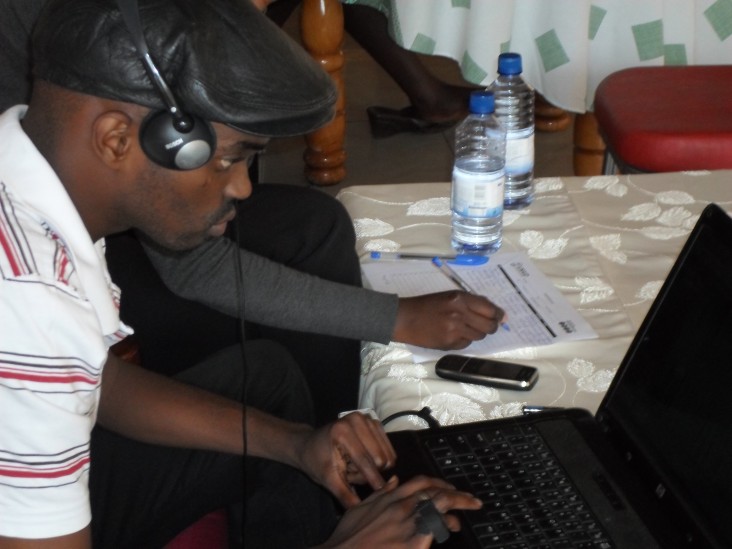
May 2014—Pascal Habababyeyi, 25, is a radio journalist in Rwanda’s Southern province at Huguka Radio, a community station. Radio is the most popular form of media in Rwanda, and Radio Huguka alone reaches an estimated audience of over 1 million listeners.
Although Habababyeyi has university training in journalism, he still lacked some basic journalism skills. This is the case for the majority of Rwandan journalists, who have never had formal journalism training.
Since September 2013, Habababyeyi has attended seven local workshops to build his skills through USAID’s Rwanda Decides Elections program. Through the workshops, he has learned additional journalistic skills and techniques like radio features reporting, which will help advance his career.
“Radio features are concepts that we were taught vaguely in journalism school.” Habababyeyi explains. “The trainings have given me hands-on experience in developing in-depth features. Moreover, in practice we are often limited by time and resources for research, so these trainings have proved that it is actually possible to effectively produce good features despite the limitations.”
Habababyeyi has also learned to use intermediary subject experts when researching stories. He was also surprised to learn that expressing his personal opinions when covering a story is against the principles of professional journalism.
“I learned that it is not enough to only interview affected parties when developing a story,” says Habababyeyi. “It is important to get the opinions of subject experts, especially in controversial issues. I was amazed to learn that it is against journalism ethics and principles to express personal judgment when reporting a story.”
He was also exposed to a new dimension of teamwork and has further developed his leadership skills. “These trainings have exposed me to aspects of teamwork such as discipline, devotion, mutual respect, consensus and loyalty,” he says.
Throughout the workshops, his team achieved outstanding performance.
“Before participating in these trainings, I had never supervised anyone,” says Habababyeyi. “These trainings exposed me to team leadership a couple of times, where I’ve learned that self-confidence is one of the critical aspects of leadership. I also learned that I needed to gain my team’s trust. I believe the most critical lesson was that one must overlook his/her weaknesses to preserve team efficiency. Otherwise, it can affect the team’s performance.”
The Rwanda Decides Media & Elections project, which began in June 2013, is an 18-month initiative implemented by the Institute for War and Peace Reporting that works to improve the quality and accuracy of reporting in Rwanda, including media coverage of the 2013 parliamentary elections and post-election activities.
Related Links
Follow @USAIDRwanda, on Facebook, on Flickr







Comment
Make a general inquiry or suggest an improvement.